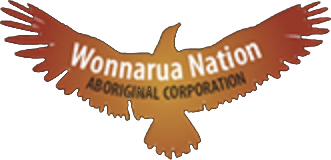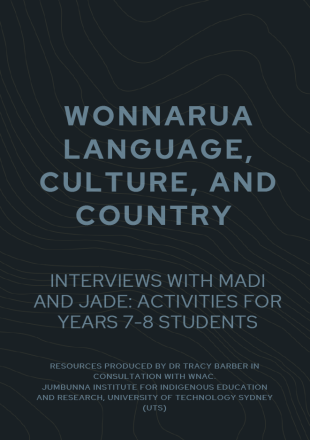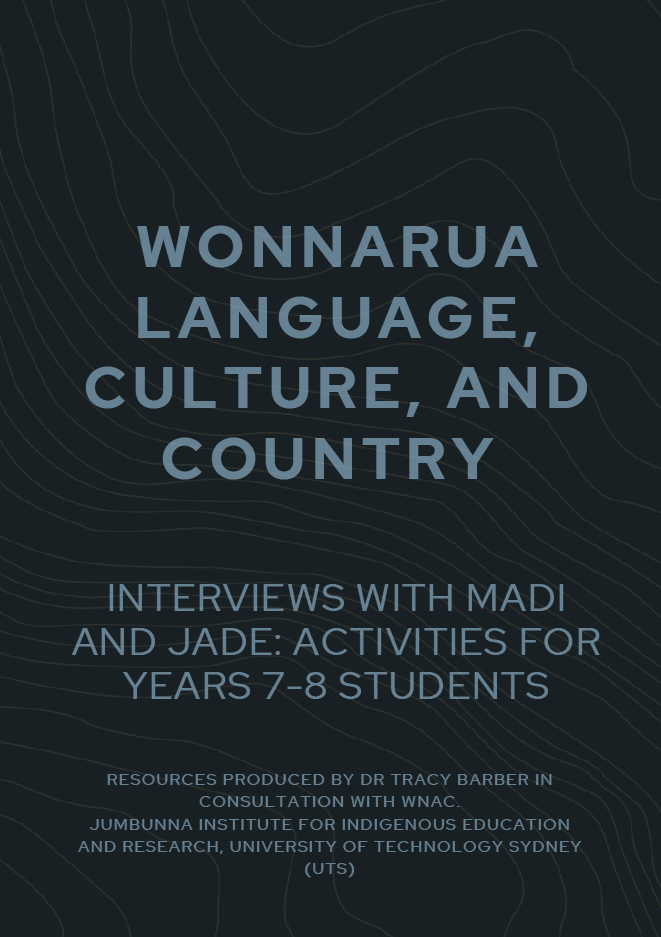Interview with Jade Perry
Transcription
Interview with Jade Perry
Monica Galassi (MG) [00:00:23] Recording stories about the importance of language and language revitalisation. Interview with Jade Perry.
Monica Galassi (MG) [00:00:23] Can you introduce yourself?
Jade Perry (JP) [00:00:23] My name is Jade Perry, I'm a proud Wonnarua/Guringai woman. I'm the daughter of Laurie Perry, the granddaughter of Rhoda Perry, great-granddaughter of Jane Miller. I was born and raised in Singleton in Wonnarua Country and I am now living on Wabical land.
Monica Galassi (MG) [00:00:47] What is your relationship with the Wonnarua language?
Jade Perry (JP) [00:00:47] Yeah, my relationship with the Wonnarua language as a Wonnarua woman is to keep that language alive. So at the moment I'm learning language and I hope the outcome is that I can teach my mob, teach my nieces and nephews and my own kids one day. And keep it alive because it's a huge part of our culture and identity.
Monica Galassi (MG) [00:01:16] Why do you think language is important?
Jade Perry (JP) [00:01:17] I guess what I said before language is that a part of our culture and our identity and our belonging, our ancestors spoke the language. So it's really important to have our language back.
Monica Galassi (MG) [00:01:37] What does it mean for you to be able to speak language on Country?
Jade Perry (JP) [00:01:38] Because I'm still learning to speak the language, I cannot wait to be able to do a Welcome to Country in language and on Country, it would feel so powerful and strong for me as a proud Wonnarua woman to be able to do that. But I've been learning it on country with some of my mob which is being really, really good and I guess really exciting to be able to have that connection with mob and to be learning it on Country.
Monica Galassi (MG) [00:02:15] What has been the impact of the revitalisation of the Wonnarua language on you and on your family?
Jade Perry (JP) [00:02:16] On me personally has kind of been really hard work. Trying to get the pronunciation of the words and getting the words altogether, then putting it in sentences like it's been quite hard. But exciting to know that after many years of having our language taken away and not spoken, that we have our language back and we can start talking to our families. And yes it's so important. You say other Aboriginal mob - Gomeroi have their language and Darkinjung have their language and Worimi have their language and it's like for us is missing. I'd be really good. And it's really exciting to know that we can have ours back.
Monica Galassi (MG) [00:03:15] Have you had any contact with Wonnarua language materials held in libraries and archives?
Jade Perry (JP) [00:03:15] I was unaware of any other archive in libraries or language material. The only material that I was aware of was the 'Hunter River Lake Macquarie' book, which I looked at with my father, Laurie. But that's the only language that I knew of. Around November last year, Auntie Sharon Edgard-Jones has been teaching Wonnarua language every second Saturday with some of our mob at Minderriver. And I guess I was the lucky one to get an invite to be able to learn that language with her. And she just wrote a book, 'Beginner's Guide for Wonnarua Language'. So I go to those classes every second Saturday and learn the language with them. But yeah, other than that, it was just the 'Hunter River Lake Macquarie' book. But I do think materials like the cards that you suggested would be a good resource to learn language. And I guess being recorded as well, like hearing it back and things like that would also be a good resource. I think I also like having language classes available as well, like having mobs and teachers in their communities that want to have Wonnaura language in their schools and things like that is quite important. We have been learning if we have just a picture, say, of a dingo or something like that. So and then we have a flag up there and each person would just go up there and just go over and over again like three times and we'd listen to everyone do it. And I found that that was really good for me to learn. Like, yeah, that was something I found that was easy to learn and like, it was really repetitive. And I was thinking, how am I going to remember all this stuff? And like, you just do you just remember it. Like kind of like teaching a baby how to say "mum" like, you just constantly have to keep saying it over and over again. Yeah. Learning the language has been a bit difficult, but at the same time, like so rewarding, having your language back.
Monica Galassi (MG) [00:05:56] What resources have you found to be the most useful in learning language?
Jade Perry (JP) [00:05:57] Just became more passionate about it, like I've been going home over an afternoon and just doing 30 minutes of language, like just going over and over again just so I can be able to describe what it is. Yeah, it is exciting.
Monica Galassi (MG) [00:06:18] What is your hope for the future of the Wonnarua language?
Jade Perry (JP) [00:06:18] My hope for the future of the Wonnaura language is to keep language alive within the future of our mob, our kids and so forth. To be acknowledged in Wonnaura country, our language welcome signs, signs in language, and to be taught in schools. Yeah, to keep it alive is the most important thing, as well as our culture, to keep it alive as well.
Recorded via Zoom, March 2021. Copyright of Jade Perry. Interview conducted by Monica Galassi, Jumbunna Institute for Indigenous Education & Research, University of Technology Sydney (UTS).


